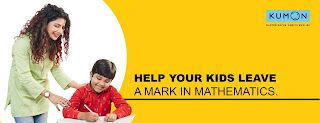Tips to Help Students Secure Good Marks in Math Tests
Mathematics is a barometer for academic aptitude
and future success. That’s the reason why most parents focus greatly on
developing their child’s numerical ability. Being good at math is regarded not just
a sign of intelligence but also opens the doorway to lucrative career
prospects. No wonder, so many parents wish that their child be good
at this subject. They even go to great length to ensure that their child
gets proficient in maths.
People are of the belief that some are hardwired
for math while others are not. This belief system has gained strength because
it seems like math comes naturally to some while others really struggle. But
contrary to popular belief, that’s not true. Math like any other thing can be
mastered by anyone with the proper training and approach?
Have you seen a juggler in action? What do you
notice? They tend to juggle balls, bottles or any other items simultaneously.
It may be three, maybe five or maybe seven, depending on the complexity; but
when he does it, seems like it comes to him so naturally. But was he born that
way? No not at all! Initially, he must have fumbled so many times, failed on so
many occasions. But he kept working on it and it became more and more
fluid over time. It’s the same with mathematics. Practice and repeat!
If you feel like your child’s mathematical
aptitude is not up to the mark, there are many math learning centres
that can help you out. Doubt and confusions are the main reasons behind
mathematical ineptitude. When left unchecked it leads to learning gaps. And the
gaps keep getting wider and wider with time. That’s why you need to assess the
exact area and start working upon that. It’s the same as working on the
foundation of a structure. If it’s getting shaky you will need to understand
which pillar is getting weakened and what spot in the pillar demands your
attention. It’s on the basis of this idea that the Kumon method was developed.
Kumon is a world-renowned after-school program
for math and English that focuses on the just-right level of learning. The
just-right level is an assessment of your child’s appropriate learning level
that he/she is at currently. For example, although your child is a
sixth-grader, if his math is weak for his grade, it means he missed a few
concepts back in the fifth or fourth grade. That’s why at Kumon they will try
to assess your child’s exact proficiency level in order to understand where the
learning gaps are, and once it has been determined they will start the practice
from that point onwards. The Kumon small step worksheets are specially designed
for self-learning which helps develop the child’s critical thinking and
reasoning skills. Through repetitive learning, these worksheets help your child
retrace their past mistakes. This strengthens their learning core helping them
emerge as more confident learners.
If you are worried about your child’s math test
scores your worries may be bigger than you think. Try and understand what may
be the reason. Is it just lack of practice, loss of interest or learning gaps?
If you don’t look into it now, it will only lead to bigger problems
later.




Comments
Post a Comment